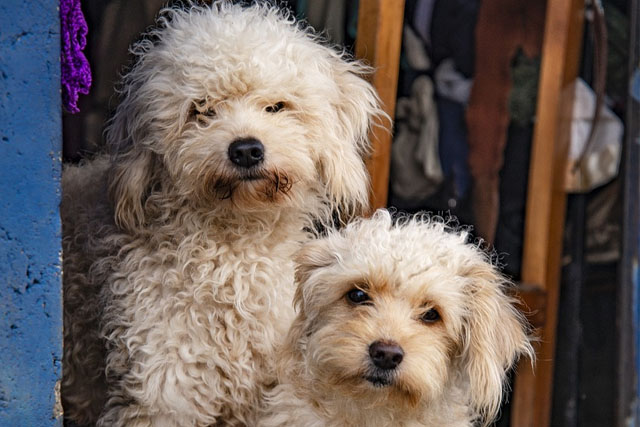



Dogs, like humans, are sensitive to changes in temperature. They have a natural ability to regulate their body temperature through panting and sweating through their paws. However, extreme temperatures can still have an impact on their overall well-being, including their appetite.
Temperature can have a significant effect on a dog's appetite. Just like humans, dogs may experience a decrease or increase in appetite depending on the temperature. In hot weather, dogs tend to eat less, while in cold weather, they may eat more.
During the summer months, dogs may eat less due to the heat. High temperatures can make dogs feel uncomfortable and lethargic, leading to a decrease in their appetite. Additionally, dogs rely on panting to cool themselves down, and this process can make them feel less hungry.
The heat can also affect the taste and smell of food, making it less appealing to dogs. This can further contribute to a decreased appetite. It's important to note that some dog breeds are more sensitive to heat than others, and their appetite may be affected more significantly.
On the other hand, in cold weather, dogs may have an increased appetite. Cold temperatures can cause dogs to burn more calories to stay warm, leading to a higher energy requirement. This increased energy expenditure can result in a greater appetite as dogs try to replenish the calories they have burned.
Additionally, the cold weather can stimulate a dog's sense of smell, making food more enticing. Dogs have a keen sense of smell, and the aroma of food can be more pronounced in colder temperatures. This can lead to an increased interest in food and a larger appetite.
When it comes to feeding your dog in different temperatures, there are a few tips to keep in mind:
- In hot weather, it's important to provide your dog with plenty of fresh water to stay hydrated. You can also consider feeding them smaller, more frequent meals to encourage eating. Avoid leaving food out for extended periods as it can spoil quickly in the heat.
- If your dog has a decreased appetite in hot weather, you can try offering them wet food or adding some water to their dry food to make it more palatable. You can also try feeding them during the cooler parts of the day, such as early morning or late evening when the temperature is lower.
- In cold weather, make sure your dog has access to shelter and a warm, dry place to eat. You can consider feeding them slightly larger meals to meet their increased energy requirements. Adding warm water or broth to their food can also make it more appealing.
- Regardless of the temperature, it's important to monitor your dog's weight and adjust their food intake accordingly. If you notice significant changes in their appetite or weight, it's best to consult with your veterinarian for guidance.
In hot weather, it's crucial to be aware of the signs of heatstroke in dogs. Heatstroke is a life-threatening condition that can occur when a dog's body temperature rises to dangerous levels. Some signs of heatstroke include excessive panting, drooling, rapid breathing, vomiting, diarrhea, weakness, and collapse.
If you suspect your dog is experiencing heatstroke, it's important to seek veterinary help immediately. Heatstroke can be fatal if not treated promptly. While waiting for veterinary assistance, you can try to cool your dog down by moving them to a shaded area, applying cool water to their body, and offering them small amounts of water to drink.
In conclusion, temperature can have a significant impact on a dog's appetite. Dogs may eat less in hot weather due to discomfort and decreased interest in food, while they may eat more in cold weather to meet their increased energy requirements. It's important to monitor your dog's appetite and make adjustments to their feeding routine accordingly. If you notice any significant changes in their appetite or overall well-being, it's best to consult with your veterinarian for guidance.
Related posts